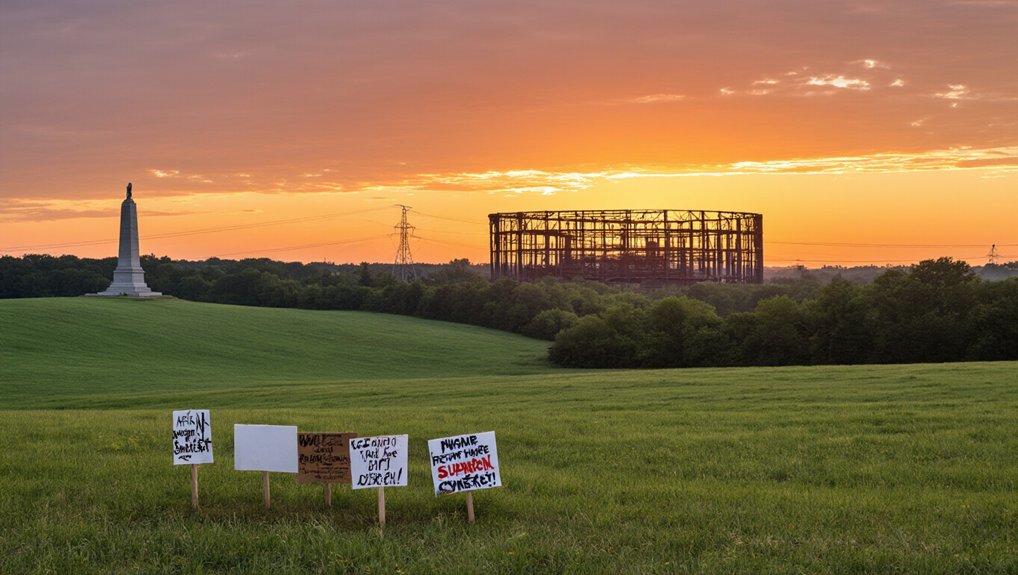A battle rages in America’s small towns. On one side: tech giants with deep pockets and promises of economic salvation. On the other: ordinary citizens armed with nothing but determination and lawn signs. When a massive gas-powered data center targeted one rural community, nobody expected David to take down Goliath.
Residents didn’t just complain at dinner tables—they organized. Groups like the Coalition to Protect Prince William County formed practically overnight. They funded legal challenges, held press conferences, and flooded public hearings. Their message was clear: This is our home, not your industrial playground.
Grassroots resistance transformed kitchen table complaints into a coordinated legal battle against corporate giants.
“They’re turning our rural terrain into a dystopian hellscape,” one resident told reporters. Not exactly subtle, but effective. Concerns about noise pollution, environmental impact, and strain on local resources dominated public discourse. The data center’s proximity to Manassas Battlefield National Park didn’t help its case either. History versus servers? No contest.
The developers’ playbook was predictable. They targeted smaller municipalities with limited regulatory oversight, dangling tax revenues and jobs like candy. Classic corporate strategy: divide and conquer. But this time, it backfired spectacularly.
Legal action became the community’s weapon of choice. Lawsuits challenged rezoning decisions, alleged procedural violations, and questioned compliance with land-use regulations. The lawsuit specifically claimed the county didn’t properly publish legal notices in The Washington Post as required by state law. Developers insisted they’d followed the rules. Residents disagreed. Vehemently.
Economics became the battlefield’s center. “They’ll create jobs!” supporters claimed. “But at what cost?” opponents fired back. Questions about infrastructure expenses and who’d actually foot the bill remained unanswered. The proposed buildings at 80 feet tall would tower over local height restrictions, literally overshadowing the community. Funny how those economic projections always seem rosy until the bill arrives.
Through persistent scrutiny and unwavering opposition, the community exposed corporate tactics that relied on municipal inexperience. Public forums became increasingly hostile toward both developers and officials who supported them. Residents pointed to greenhouse gas emissions from gas-powered facilities as contradicting global efforts to combat climate change.
In the end, this David won because they refused to play Goliath’s game. They didn’t fight with money—they fought with voices, legal challenges, and an absolute refusal to back down. Sometimes the smallest towns have the loudest roars.
References
- https://www.govtech.com/infrastructure/farmington-minn-residents-sue-to-stop-data-center-park
- https://wtop.com/virginia/2024/01/a-dystopian-hellscape-pw-digital-gateway-opponents-sue-to-block-data-center-corridor/
- https://www.sweetstudy.com/sites/default/files/qx/15/10/07/04/cheng_gong_xie_zuo_successfulwritingatwork9th2007.pdf
- https://gist.github.com/sakha1370?direction=desc&sort=created
- https://www.sipa.columbia.edu/sites/default/files/2022-09/Working Paper Series 2.pdf






